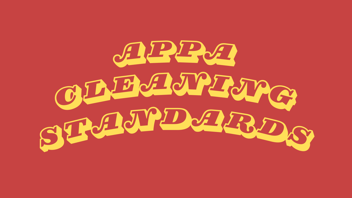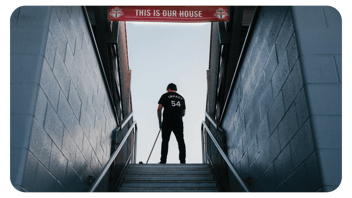I know… we said we wouldn’t be posting generic cleaning content that you can find on Google. We’ve had second thoughts.
Our goal, with our content, is to provide value and knowledge. Not just to our customers. We want to provide value and knowledge to everyone! Our customers, our cleaners, our peers, and even our competitors.
A rising tide lifts all ships. We want to raise the standards and the camaraderie in the cleaning community.
So for those reasons, we’ve pivoted.
We’re going to be answering even your most basic questions as they relate to cleaning and more specifically, commercial cleaning services.
So, let’s dive into the most basic and generic of questions…
Understanding Commercial Cleaning
Commercial cleaning refers to the professional cleaning services provided to businesses, organizations, institutions, and other commercial establishments. These services are typically contracted out to specialized cleaning companies or janitorial services.
Commercial cleaning encompasses a wide range of tasks aimed at maintaining cleanliness, hygiene, and overall tidiness within commercial spaces. This can include office buildings, retail stores, restaurants, schools, hospitals, warehouses, and more.
Commercial cleaning services are typically scheduled on a regular basis, ranging from daily to weekly or monthly depending on the needs of the client and the type of facility. These services are essential for maintaining a clean and healthy environment for employees, customers, and visitors, while also helping to prolong the lifespan of the facilities and equipment.
Commercial Cleaning vs Residential Cleaning
Commercial cleaning and residential cleaning are both forms of professional cleaning services, but they differ in several key aspects:
Scope and Size of Spaces:
- Commercial cleaning typically involves larger spaces such as office buildings, retail stores, schools, hospitals, and warehouses. These spaces often have high traffic areas and require specialized cleaning equipment and techniques.
- Residential cleaning focuses on individual homes, apartments, or condominiums. The spaces are usually smaller and may include bedrooms, bathrooms, kitchens, living rooms, and other common areas within a residential property.
Frequency and Schedule:
- Commercial cleaning is often scheduled on a regular basis, ranging from daily to weekly or even less frequent depending on the needs of the business or organization.
- Residential cleaning may also be scheduled regularly, such as weekly or bi-weekly, but it can also be arranged on an as-needed basis, such as for special occasions or one-time deep cleanings.
Types of Services:
- Commercial cleaning services typically involve a broader range of tasks to address the specific needs of commercial establishments. This may include tasks such as floor maintenance, carpet cleaning, window washing, and specialized cleaning for industries like healthcare or food service.
- Residential cleaning services focus more on tasks relevant to home environments, such as dusting, vacuuming, mopping floors, cleaning bathrooms and kitchens, and general tidying up.
Equipment and Supplies:
- Commercial cleaning often requires specialized equipment such as industrial-grade vacuum cleaners, floor buffers, carpet extractors, and high-pressure washers to tackle larger areas and tougher cleaning challenges.
- Residential cleaning generally involves more standard household cleaning equipment and supplies, although professional residential cleaners may use high-quality tools and eco-friendly cleaning products.
Regulations and Standards:
- Commercial cleaning may need to adhere to specific regulations or standards set by industry guidelines or government agencies, especially in sectors like healthcare or food service where cleanliness is critical for safety and hygiene.
- Residential cleaning services are typically more focused on meeting the preferences and expectations of individual homeowners, although they may also need to adhere to local health and safety regulations.
Overall, while both commercial and residential cleaning involve professional cleaning services, they differ in terms of the scale of the spaces, the types of services provided, and the equipment and regulations involved.
What are the benefits of owning a commercial cleaning company vs a residential cleaning company?
Owning a commercial cleaning company and a residential cleaning company each comes with its own set of benefits. Here are some advantages of each:
Benefits of Owning a Commercial Cleaning Company:
- Higher Revenue Potential: Commercial cleaning contracts often involve larger spaces and recurring business, which can lead to higher revenue compared to one-time residential cleaning jobs.
- Stable Client Base: Commercial clients typically sign contracts for ongoing cleaning services, providing a stable and predictable source of income for the cleaning company. We have close to a 99% YoY retention rate!
- Specialized Services: Commercial cleaning may involve specialized services tailored to specific industries, such as medical facility cleaning, which can command higher rates and require specialized expertise.
- Professional Relationships: Building relationships with commercial clients can lead to long-term partnerships and referrals, contributing to business growth and stability. Some of our relationships go back decades!
- Scalability: Commercial cleaning companies can scale their operations by taking on larger contracts or expanding into new markets, providing opportunities for growth and expansion. Customers tend to “pull you” into new markets where they are having challenges.
Benefits of Owning a Residential Cleaning Company:
- Flexibility: Residential cleaning companies often have more flexible schedules, allowing owners to accommodate clients' individual needs and preferences.
- Lower Overhead Costs: Residential cleaning typically requires less specialized equipment and overhead costs compared to commercial cleaning, making it easier to start and operate on a smaller scale.
- Personalized Service: Residential cleaners have the opportunity to develop personal relationships with clients and provide customized cleaning services tailored to their specific needs and preferences.
- Variety of Jobs: Residential cleaning involves a variety of tasks and settings, from single-family homes to apartments and condos, providing diversity in the types of jobs available.
- Lower Barrier to Entry: Starting a residential cleaning company may require less initial investment and training compared to commercial cleaning, making it more accessible for individuals looking to enter the cleaning industry.
Ultimately, the choice between owning a commercial cleaning company and a residential cleaning company depends on factors such as revenue potential, personal preferences, business goals, and available resources. Both types of cleaning businesses offer opportunities for success and growth, but each comes with its own unique set of advantages and challenges.
Why we love commercial cleaning!
We’ve been cleaning commercial properties for 70 years. That’s a long time to be doing something. But we love it. From day 1 we’ve only ever aspired to be the best commercial cleaning company. We have no desire to enter the residential cleaning market. This is not to say it isn’t a good market, we just prefer the commercial sector.
Besides the reasons outlined above, one of the biggest reasons why we love the commercial sector is because typically most people we deal with (building owners, property managers, facility managers, etc) have experience and knowledge when it comes to high quality cleaning services. And when they judge our work, they compare it to a (fairly) objective standard of measure. Usually this is something like the APPA Cleaning Standard, their SLAs, or our Scope of Work.
In our experience, dealing with homeowners can lead to a lot more subjectivity, ambiguity, and emotional decision making. In simpler terms, there is a lot of “sentimental value” placed on the objects within a person's home. When dealing with commercial real estate professionals there can certainly be subjectivity from time to time, but more often than not things are pretty black and white. This makes it easier to resolve matters, move forward, and continue to work together.
If you’re interested in learning more about the commercial cleaning industry drop us a comment below!





Leave a Comment